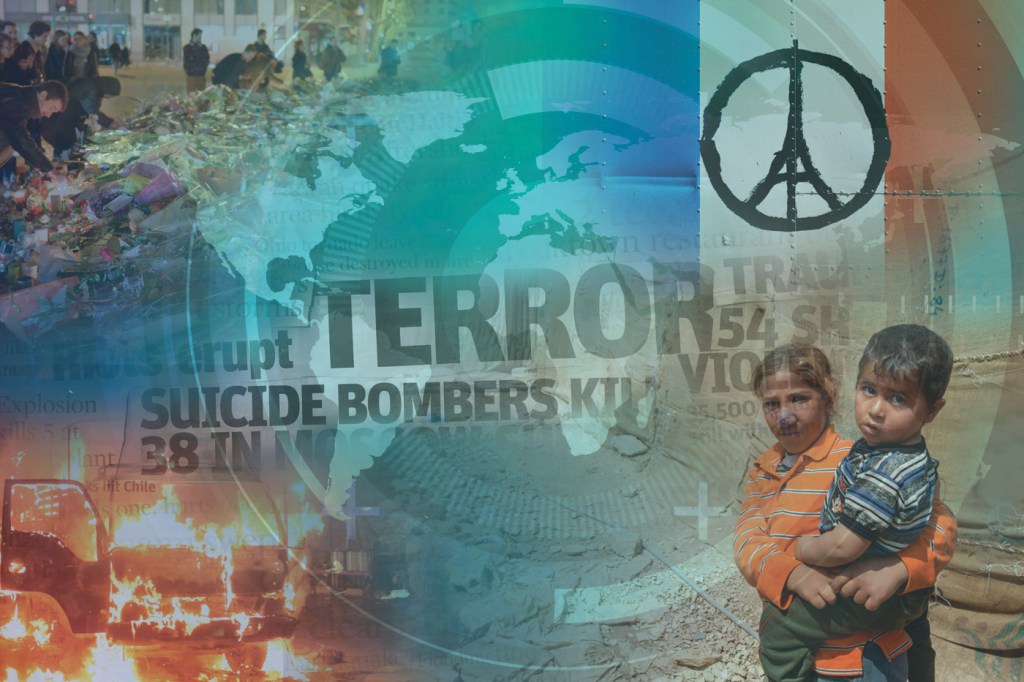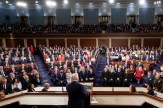3Qs: Is there a media bias in terrorist attack coverage?

In the past several months, terrorist attacks have rocked countries around the world: France, Lebanon, Belgium, Turkey, Iraq, Nigeria, the Ivory Coast. Hundreds have been killed and injured. Many people have criticized the  Western media’s coverage of those tragedies, call it uneven for concentrating largely on the strikes and aftermath in the European cities of Paris and Brussels. That, in turn, critics say, influences the public outcry regarding the atrocities.
Western media’s coverage of those tragedies, call it uneven for concentrating largely on the strikes and aftermath in the European cities of Paris and Brussels. That, in turn, critics say, influences the public outcry regarding the atrocities.
We asked Northeastern’s John Wihbey, assistant professor of journalism and new media, to comment on the source of those criticisms, what influences coverage of such attacks by media in other parts of the world, and how we—the media and news consumers alike—could go about rectifying any imbalance.
There have been a number of recent terrorist attacks, including those in Paris, Beirut, Brussels, Ankara, and Lahore. Many people have criticized the Western media’s coverage of those tragedies, calling it uneven. What is the source of those criticisms?
There is a perception that news media often give less attention to cultures that are perceived to be “other,” and no doubt this is frequently true. This type of critique of differential coverage based on cultural bias came up again after the Paris bombings in late 2015, when Beirut had also seen a terrible bombing and Lebanon didn’t receive the same attention in Western media. Some saw a big “empathy gap” based on a kind of parochialism and xenophobia. That may be on display again in the wake of Brussels. It is an old theme, in fact. I would say that many U.S. reporters and editors are at least now aware of this pattern, and many work hard to fight against that trend. It’s important to keep in mind, however, that it is hard to generalize about the “media” as a whole, particularly in our era of fragmentation and personalization of media consumption.
Mainstream news media coverage often follows, or “indexes to,” elite opinion and policymakers’ debate and discourse. So we might interpret this differential treatment as partly a function of what’s going on in Washington and other power centers. That doesn’t excuse news media, or relieve them of culpability or responsibility, but it helps us understand the patterns.
That said, it is worth noting that in the cases of Paris and Brussels, the Islamic State was involved. The U.S. is in direct, intense armed conflict with this group, as opposed to other groups allegedly responsible for similar recent incidents, such as those in Lahore or Ankara. The direct connection matters, because it means elites in the U.S. will be talking about it. I should also say that there are certain norms of “newsworthiness” at work. Part of how editors and reporters decide what is newsworthy is by thinking about what directly impacts their audience. There is extensive travel between the U.S. and Western Europe. That matters to news decision-makers. Ideally, journalists work to expand people’s horizons and views. Sometimes they do. But sometimes they don’t, and that often has to do with the norms of the industry.
How does the response of Western media to the attacks compare with that in Europe, the Middle East, and Asia? And what role might cultural and historical differences among regions play in the attention given to such atrocities?
Europe has traditionally had a broader view of world affairs as filtered through its news media for a variety of reasons, including that many European countries have cultural ties dating back to the colonial era. Still, there is some evidence that foreign news coverage is shrinking globally on television across many regions, including in places like Germany and Britain. Part of this is a result of the changing economics of the media business. As for other regions, such as the Middle East or Far East, it is difficult to make generalizations. According to my own, anecdotal observations, there is some of the same parochialism in Middle Eastern and Asian news media as in the U.S. news media. In an ideal world, everyone would be cosmopolitan and equally concerned about all acts of injustice and violence. But citizens have what some have called a “finite pool of worry,” and there is a bit of human nature involved in caring more about relatively proximate, as opposed to seemingly distant, threats.
The U.S. news media’s attention to foreign affairs has traditionally ebbed and flowed, partly in response to shifts in the national mood and climate of public opinion, according to a report from the Pew Research Center. There have long been competing strands of isolationism and internationalism. In the immediate post-Cold War era, attention to foreign news receded. After the 9/11 attacks, foreign news received more attention again from news outlets and the public. The post-9/11 spike in attention, however, disappeared a number of years ago. It is unclear where we are in this periodic cycle. Many U.S. news organizations have closed their foreign bureaus over the past two decades, and there are only a few powerful news organizations left that send correspondents overseas. News media do have some ability to drive the public agenda, but it is limited, and the contraction of foreign bureaus makes this very difficult.
Is it important to rectify an imbalance in coverage, and if so, how might we do that?
The first thing I’d say is that news media members need to be knowledgeable enough to be able to show the connections between remote events and their audience. “Foreign” affairs can seem to be another world if reporters don’t take the time to learn about the policy, economic, and cultural ties that connect our increasingly globalized world. So we need reporters and editors with real knowledge to help make those connections clear to readers and viewers. That’s one thing that a global institution like Northeastern can really help with in the coming years.
The other thing to keep in mind is that we also have a responsibility as news consumers. We are in a golden age right now in terms of the menu of news available to us. There is some very good analysis of the connection between media consumption and global citizenry. In this regard, I would recommend reading Rewire: Digital Cosmopolitans in the Age of Connection, by Ethan Zuckerman, director of the Center for Civic Media at the Massachusetts Institute of Technology. We send a market signal to news media when we click, read, and watch. We need to be more self-aware about our news diet and seek out new sources of perspective and information.





